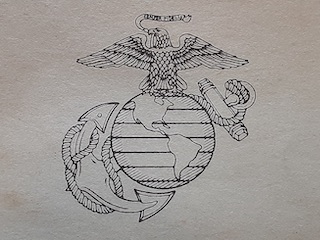It is not uncommon for our office to receive phone calls from a veteran facing criminal charges, as the veteran may see that Greg Hill is a former U.S. Marine officer. The caller anticipates that he will be able to trust Greg more than a non-veteran who is an attorney, which we appreciate greatly.
The answer to such a question depends upon the time period when the person served, the length of service and, of course, the type of discharge.
The answers have special significance because they, in turn, affect whether the individual can seek Veteran’s Diversion under California Penal Code § 1001.80, sentencing alternatives under Penal Code § 1170.9 or Veteran’s Court. Such programs are great programs, but a veteran’s criminal history and service-related disability (and rating of disability from 0 to 100%) are considerations.
If one served our country prior to September 1980, the person must have received an Honorable or a General under Honorable Discharge. There is no length of service requirement at all, so even one day in uniform would qualify.
 VA Center Sign
VA Center Sign
After September 1, 1980, the person must have served two consecutive years on active duty and received an Honorable or General under Honorable discharge. If one was only a reservist, that person must have been activated during a conflict, i.e. the Gulf War, Iraq, Afghanistan.
If one received an Other Than Honorable (OTH) discharge, a Dishonorable discharge or a Bad Conduct Discharge (BCD, also known as the “Big Chicken Dinner” discharge), that person is ineligible for healthcare benefits, which would mean ineligible for drug and alcohol counseling.
A person with an OTH discharge, however, may still be eligible for grant and per-diem programs, so it is wise to follow up with the VA. Such programs involve VA contracts with community agencies like the Salvation Army, the Mary Lind Foundation and New Directions for recovery programs for vets.
The West Los Angeles VA has a VA-staffed 300-bed mental health rehabilitation and substance abuse recovery program. There are quite a few people there receiving therapy for PTSD rehabilitation and addiction recovery. The duration is typically three to four months, but it can extend beyond six months.
 USMC Globe Anchor
USMC Globe Anchor
It should be understood from the outset that services depend upon one’s income. A veteran may be co-pay exempt for medication and healthcare if their income is under the respective thresholds for each benefit.
As of fall, 2017, there are several points of contact that we regularly use. Greg Cain at Gregory.cain@va.gov and (310) 597-5016 is excellent at the West LA VA. Pamela Davis, at (213) 253-2677, x 24786, (213) 628-4066 and pamela.davis1@va.gov is also very knowledgeable and conscientious. We have also had good success with Sergio Antoniuk at (310) 597-3495 and Sergio.antoniuk@va.gov and Tiffany Perez at (213) 253-2677, x 24787 and (213) 418-8660. Sergio is at the East LA VA.
Each of these individuals are very helpful. We have been immensely impressed with each of these individuals and their readiness to come to court and really “go the extra yard.” They are consummate professionals – enthusiastic, knowledgeable and reliable.
After speaking with an appropriate point of contact, it is smart to have an attorney who is experienced in knowing what the judge wants for each type of program. Most commonly, it can be a challenge having a mental health professional opine that there was a nexus between the individual’s service-related disability and the crime.
When the mental health professional cannot state that there is any such causal relationship, we then often discuss the new mental disorder diversion program (under Penal Code § 1001.36) that Governor Brown signed into law in July, 2018. It is a “fallback” program for veterans who may have a mental disability, but it is not service-related.
For more information about veteran’s issues under California criminal law, please click on the following articles:
- Is Diversion Available for Veterans in a DUI? Yes
- Diversion Programs in California for Armed Forces Veterans
- Sentencing Alternatives for Military Veterans under Penal Code § 1170.9
Contact us.  VA Center Sign
VA Center Sign USMC Globe Anchor
USMC Globe Anchor